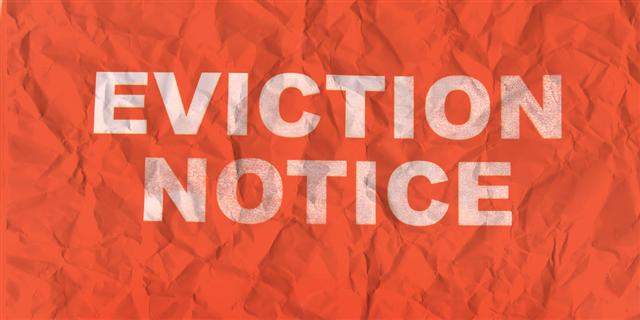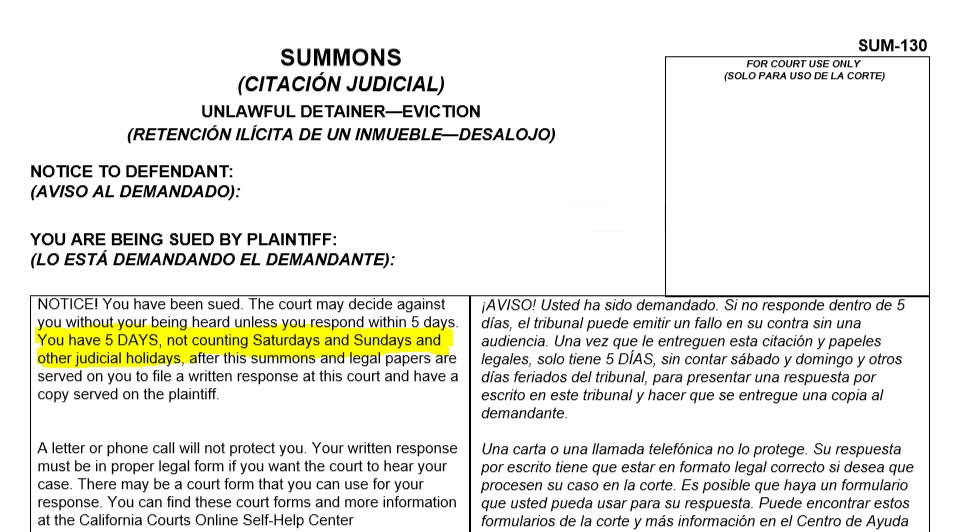New California law amends Sections 1161 and 1167 of the Code of Civil Procedure, relating to real property.
AB 2343, Chiu. Real property: possession: unlawful detainer.
(1) Existing law establishes a procedure, known as an unlawful detainer action, that a landlord must follow in order to evict a tenant. Existing law provides that a tenant is subject to such an action if the tenant continues to possess the property without permission of the landlord in specified circumstances, including when the tenant has violated the lease by defaulting on rent or failing to perform a duty under the lease, but the landlord must first give the tenant a 3-day notice to cure the violation or vacate.
This bill would change the notice period to exclude judicial holidays, including Saturday and Sunday.
(2) Under existing law, a plaintiff that wishes to bring an action to obtain possession of real property must file a complaint and serve the defendant with a notice of summons, in which case the defendant has 5 days to respond.
This bill would clarify that the period in which a defendant may respond to a notice of summons does not include judicial holidays, including Saturday and Sunday.
(3) This bill would provide that these provisions would become operative on September 1, 2019.
California Judicial Counsel has adopted a new revised Unlawful Detainer Summons (SUM-130) for mandatory use effect September 1, 2019. The summons reflects the change in the law advising the defendant(s) that they have “5 DAYS, not counting Saturdays and Sundays and other judicial holidays after the summons and legal papers are served” to file a response to the lawsuit. The law applies to 3-Day Notices to pay Rent of Quit and Notice to Quit as well in regards to Saturdays, Sundays and Judicial Holidays are also not counted, when the tenant must cure the defect stated in the notice, i.e. pay the rent, vacate the premises, remove animals, etc.
You can find the new form here:


